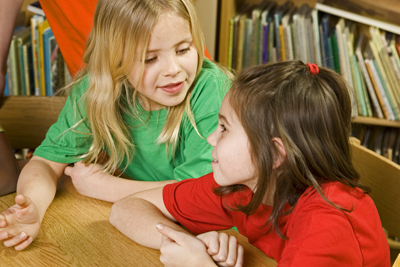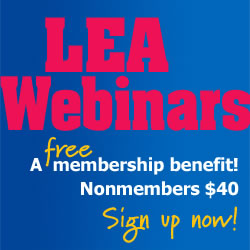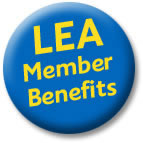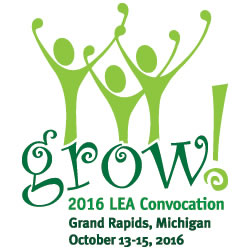
 Preparing Our Students to Witness
Preparing Our Students to Witness
(Acts 1:8 ESV)
This was the confirmation verse I selected in eighth grade. My mother questioned my choice. Wouldn’t I rather have a nice psalm rather than all that “Judea and Samaria stuff”? But my choice was intentional. You see, I knew I wanted to be a Lutheran school teacher. By this point in my life, I felt I was in my Jerusalem. I had become quite comfortable with helping friends with homework, assisting teachers in my father’s school, and aiding for VBS. I recognized this call: witness where you are. Just as the disciples at Pentecost started sharing the Good News with those around them, I felt God calling me to be a witness where I was—in my school, with my friends, and then when I grew up, to a classroom full of students and maybe one day a foreign mission. I liked this verse (plus my older brother had already claimed the Great Commission).
We intertwine the stories of the apostles’ witness with practice dialogue and discussions of apologetics. Students begin to recognize that everyday situations are opportunities to talk about faith.Witnessing. How do we help our students learn to share their faith in a deliberate way? Kids today are so wrapped up in their own lives that they do not stop to think, “O.K. God, who will you place in my life today that needs to know your love?” No, kids are focused on friendships, sports, homework, meeting parent expectations, and electronic devices. Kids live in the here and now. Are we adults any different? As Lutheran teachers, we can help students recognize their Jerusalem—God’s call to witness where they are—within the vocation of student, son/daughter, brother/sister, friend.
How does this play out in the classroom? Our religion curriculum thoroughly covers Bible knowledge. I like to use the stories from the book of Acts as a springboard for intentional witnessing activities. We intertwine the stories of the apostles’ witness with practice dialogue and discussions of apologetics. Students begin to recognize that everyday situations are opportunities to talk about faith. What follows are witness ideas that have taken shape over the years in my classroom and, I pray, lay the groundwork for students to build confidence in witnessing.
 One of the most valuable activities for young people is role-playing. Students need to see how faith is not separate from everyday life.
One of the most valuable activities for young people is role-playing. Students need to see how faith is not separate from everyday life.
One simple way to begin is to distribute scene starters to partners to practice a witness situation:
- babysitting for a new family
- playing kickball when the short kid drops the catch again
- an elderly neighbor has a yard full of leaves
- not making the cut for the basketball team
The scenes are common, everyday events, rather than intentional evangelism situations. Students are challenged to make a God pleasing choice in how they play out the scene. The discussion that follows is crucial. Students cooperatively come up with positive, God- pleasing, actions, such as being kind to the kids they babysit, or standing up for the kid who gets bullied, but they don’t see the opportunity to speak about faith in the situation.
Here is where the teacher needs to model the conversation:
- sing Jesus songs when you babysit; invite the family to VBS or Trunk or Treat
- defend our classmate when teasing starts, saying God wants us to be kind
- rake leaves while visiting with the lonely neighbor; offer to pray for her
- talk positively about the coach despite your disappointment; share how God might use your math talents to do statistics for the team
Students need concrete examples of how to speak about their faith. It does not come naturally. We need the Holy Spirit to give us the words. Students need concrete examples of how to speak about their faith. It does not come naturally. We need the Holy Spirit to give us the words.
After these discussions, I like to help students define what we believe. We need to be knowledgeable to respond in confidence if our faith is questioned.
(I Peter 3:15 ESV)
Explore basic questions:
- Who is Jesus? – True God, True Man, Savior, Prophet, Priest, King
- Why did he have to die?
- Why did he have to rise?
- How do you know?
Have students explore the creeds and related Scripture passages to add depth to the simple answer, Jesus died for me.
In our next activity, I try to challenge students to think as the nonbeliever. The question I pose is, “What might ___________ ask you as a Christian?” Each group gets a paper with a different person on it to generate questions, then after a few minutes we rotate, read, and add new questions.
We use people like:
- a kid on your soccer team who sees your Lutheran school t-shirt
- your boss at the clothing shop where you work at the mall
- the kids in your neighborhood who are Jews
- your college roommate who is strongly atheist
A class discussion follows on how Christians could respond. Students move on to develop their own personal statements of faith.
Another opportunity that adds to defining beliefs is to conduct interviews with two other Christians (age 16 and up) about their faith walk. Encouraging these intentional conversations gives parents and mentors an opportunity to model faith in a way they might not have previously considered. Students ask about childhood church experiences, opportunities to witness in daily life, and how they might prepare for life challenges or persecution.
For a different witness activity, students create Scripture-based puppet skits to share with younger students. We discuss Law/Gospel and living the sanctified life as formats to use for a “plot.” Students select Bible passages that inspire scenes of everyday situations. By performing, we witness Jesus’ love (from behind the security of a puppet curtain!)
My last witness idea is good for a year-end devotion-writing project. Partners spend a religion period with their headphones listening to Contemporary Christian music. Most are quite unfamiliar with the music as our local Christian radio station is not as well known as pop music. Students get quite excited to go through CDs of artists like Toby Mac or Casting Crowns* and begin to search out other artists on the internet. They Students need to be reminded that they are but instruments in God’s hands. Ultimately it is the Holy Spirit who works faith in the heart.spend the next class period planning the devotion, including a paraphrase of the song, one or two Bible verses, a favorite line and why it stood out, how the song applies to them, and a closing prayer. Not only are students leading devotions, they are learning about positive media and how to talk about music through the eyes of faith.
As students leave our classroom Jerusalem, my prayer is that they feel prepared to defend the hope that Christ has given them. Above all, students need to be reminded that they are but instruments in God’s hands. Ultimately it is the Holy Spirit who works faith in the heart. He will use our students to take the Gospel message to the end of the earth.
Sue Riemenschneider is a sixth-grade teacher and curriculum coordinator at Zion Lutheran School in Harvester, Mo. She has taught middle grades for 22 years and serves on the LEA MIDnet Leadership team.
*Check out Casting Crowns, Here I Go Again for an example to use with students on why we need to talk about faith with our friends.
English Standard Version (ESV) The Holy Bible, English Standard Version Copyright © 2001 by Crossway Bibles, a publishing ministry of Good News Publishers.
Photos © iStock/Jani Bryson, Branimir76.







